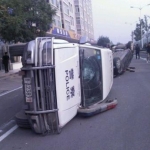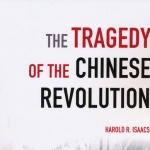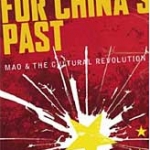Articles tagged with: history
Contemporary China, Workers »

In spring 2010, workers at a Honda plant in the industrial city of Foshan, Guangdong went on strike… This conflict triggered a strike wave across several industries and regions that lasted about two months. In autumn 2011, the inhabitants of Wukan, Guangdong took control of their rural town and kicked out local party and government staff….
These are prominent examples of the success and failure of the Chinese government’s counterinsurgency policies. Social unrest has been increasing since the mid-1990s, involving all three dangerous classes – peasants, urban workers, and migrant workers. Land conflicts, strikes, and riots in the countryside as well as the cities could be harbingers of an explosion of struggles that might blow up the existing socioeconomic power structures. However, the counterinsurgency policies were successful because the explosion has not yet taken place, despite the tension and frictions. Social unrest has put immense pressure on the regime but has not loosened its grip on power. The new ruling class of old Party officials and their Capitalist offspring1 and allies have not only modernized and strengthened the anti-uprising apparatus, but also created a range of institutions to mediate, pacify, and integrate social conflicts.
Chinese Revolutionary History, jj blog, Reviews »

Haymarket books has just reprinted Harold Isaacs‘ 1938 work on the ‘second’ Chinese revolution (1925-27): The Tragedy of the Chinese Revolution.
The book has gone through three editions, and Haymarket is publishing the first (more on this anon). The entire first edition is available online at marxists.org, but who among you dear readers doesn’t hanker after the pleasure of real paper in your hands?
The book was the first work of its kind to examine the minutiae of the 1925-1927 revolution. Isaacs spent four years writing the book, and it shows. It’s …
Chinese Left, Chinese Revolutionary History, Husunzi, Reviews »

Comments on Chris Bramall’s review of The Battle for China’s Past by Mobo Gao. In this review Bramall makes some criticism that I think Mobo would appreciate, and which may be important for thinking about how to assess PRC history in general. Unfortunately Bramall’s own perspective is limited his developmentalism – that is, his commitment to a vision of economic and social development that, while critical of inequality, assumes the inherent goodness and necessity of things like continued urbanization, increasing labor productivity and output, and – apparently – the industrialization of agriculture and the disappearance of peasant farming.
Chinese Revolutionary History, Cultural Revolution, LangYan, Mao Zedong »
Links to two papers that were written in relation to the June 2006 Hong Kong conference on the 40th Anniversary of the Cultural Revolution: “Evaluating the Cultural Revolution in China and its Legacy for the Future” and “Chinese Foreign Policy during the Maoist Era and its Lessons for Today.”

